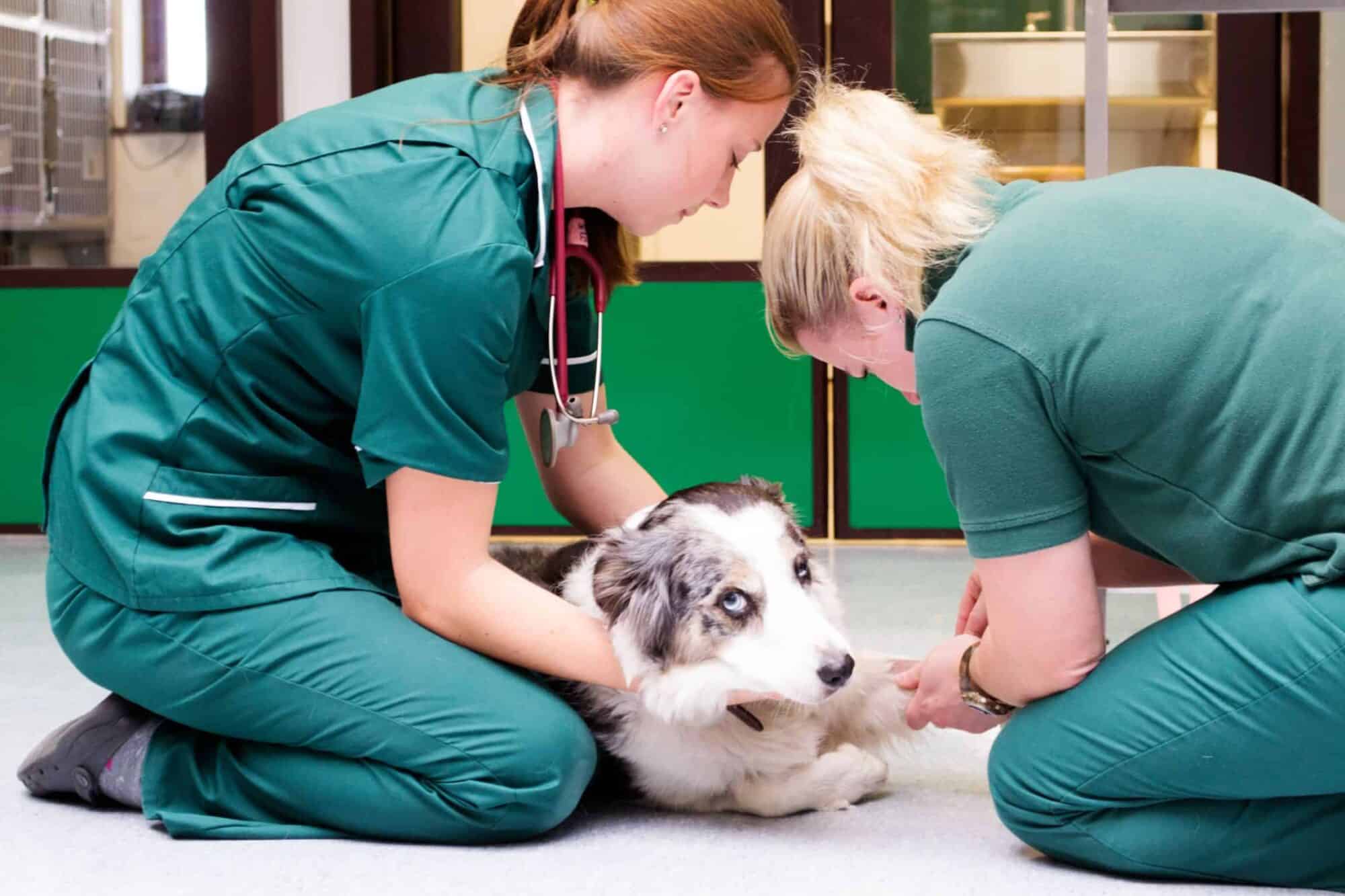Responding to the Call: Veterinarians in Action During Disasters and Emergencies

When disaster strikes, people and pets alike pay the price. Unfortunately, it can be difficult, if not impossible, for people to bring their companion animals with them to shelters during times of crisis. During Hurricane Katrina, an estimated 44% of New Orleans residents who refused to evacuate did so because they couldn’t bear to leave their pets behind.
With the post-Katrina passing of the Pet Evacuation and Transportation Standards (PETS) Act, things have gotten a little bit better. The Federal Emergency Management Agency (FEMA) now helps fund pet rescues and pet-friendly emergency shelters during natural disasters.
And that’s where veterinarians come in. Here at Animal Medical Hospital & 24-Hour Urgent Care, we want to recognize how veterinarians spring into action during disasters and emergencies.
6 Things Veterinarians Do for Pets in Natural Disasters and Emergencies
1. Search and Rescue
If there’s a group of people out there who can coax scared, anxious animals into evacuating with their owners, it’s veterinarians. They can help find and rescue family pets who are trapped in homes and provide first aid if needed.
Often, veterinarians are the first ones helping local animal rescue shelters transport pets to safer ground.
2. Provide Medical Care
Whether they’re treating injured dogs or cats on the spot or caring for pets grouped together in emergency shelters, veterinarians shoulder the medical care animals need during times of crisis. You’ll find them giving food, water, and basic medical care to pets who’ve been without these basic needs for hours—or days.
The American Veterinary Medical Association (AVMA) and the Centers for Disease Control and Prevention (CDC) have issued a set of guidelines for veterinarians to follow in emergency shelters.
They include:
- Triaging each animal
- Bathing animals as they come in
- Creating a health record for every single pet in the shelter
- Figuring out which pets have owners and which are strays
- Scanning for microchips
- Implanting microchips
- Assigning pets to labeled crates
- Providing fresh food and water
- Euthanizing pets if they cannot be saved
It’s a heavy load, and this list doesn’t come close to covering all the tasks veterinarians and veterinary teams do during disasters.
3. Disease Prevention
When animals are together in one big group, diseases can spread like wildfire. Veterinarians can provide vaccinations and other disease-management tools to keep pets healthy during times of crisis.
The AVMA and CDC recommend giving core vaccines, including rabies, to dogs, cats, and ferrets in an emergency disaster shelter. Veterinarians must also monitor each animal for signs of illness and quarantine any members of the group who appear sick.
This work saves animal and human lives, as some diseases that can spread in these situations are zoonotic.
4. Share Vital Information
During a disaster or crisis, the AVMA disseminates crucial information to local veterinarians to help them respond to the emergency. These veterinarians, in turn, can share that information with pet owners, shelter directors, and search-and-rescue crews.
Veterinarians also work with veterinary schools, veterinary associations, and the AVMA during crises. Together, these groups provide guidance to anyone working with animals and pet parents during an emergency.
5. Offer Temporary Boarding
Some veterinary centers serve as emergency boarding facilities for pets in need during a widespread emergency. Along with caring for pets during a storm or disaster, these veterinary teams also work to reunite pets and their owners afterward.
6. Make Emergency Preparedness Plans
Have you ever asked your veterinarian what should go in an emergency preparedness plan for your pet?
You should. Veterinarians have the knowledge and resources to help you plan what to do and where to take your pet in case of a widespread emergency.
The veterinary team at Animal Medical Hospital & 24-hour Urgent Care can help you plan for a disaster before it happens. Contact us today to see how we can help you and your pet prepare for the inevitable.
